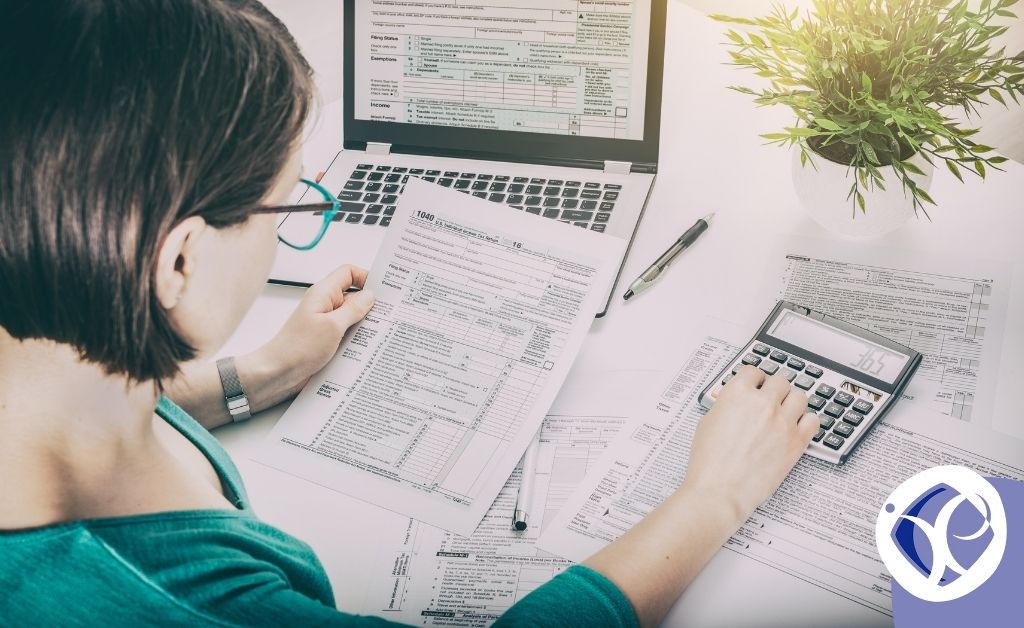Everything you need to know about last minute tax returns, from what not to forget and how to shield yourself from enquiries.

(6 minute read)
HMRC maintain that the legal deadline for submissions is 31st January, although they will waive penalties as long as you submit by 28th February.
There are still plenty of reasons why you should get your return in on time such as avoiding the extended enquiry period and interest charges.
If you want to do your tax return online, you need your Unique Taxpayer Reference (UTR) which you can only get after registering with HMRC. It can take up to 10 working days to get your UTR after registering.
Estimating Your Figures
When you need to get a tax return done quickly, you might be tempted to use estimates to get the job done on time. This can be fine as long as you tick the estimates box on your form.
HMRC need to know that you’ve used estimates and not actual figures and why you’ve done so. If you don’t provide a reason, you leave yourself open to penalties and Discovery Assessments.
If you don’t have a reasonable excuse, you’re at risk of being penalised for making deliberate errors. Even if you’re doing you’re return last-minute, you should still take care to use correct figures.
Covid-19 and Your Tax Return
When filling out your return, don’t forget that if you’re a sole trader or in a partnership you can:
- Carry back losses from the 2020/21 and 2021/22 tax years against your profits from the past three years (most recent years first)
- Carry back up to £2m for each tax year
- Relief is also available on Class 4 National Insurance Contributions
For everyone who claimed Covid-19 grants and support, remember:
- Grants and support payments are taxable and should be included in your return
- Take care to report each grant in the right space (some have their own boxes)
- You should check you received the correct amount and were eligible to claim
Claiming Back Losses
The sideways relief cap for sole traders and partners is currently set at £50,000 (or 25% of your adjusted net income). This means you may offset your losses against other income.
When reporting losses, don’t forget to include losses brought forward. This is especially true for capital losses which are easily missed but can become important in the future.
(If reporting Capital Gains, remember that residential property is taxed at a higher rate and that Business Asset Disposal Relief has been reduced to £1m)
Working From Home
You can claim for business costs if, like many, you’ve been working from home this tax year. You could claim for a proportion of your home running costs (those incurred by working from home). For example, heating and phone bills.
If you’re really pressed for time, you don’t need to work out all these expenses manually. Instead, you can claim a flat £6 per week of homeworking.
Private use of Work Assets
You must make adjustments when you use a business asset for private use. For example, if you use a company car for personal errands, you can’t claim for the whole running costs. You can only claim for what is directly related to your trade.
Mixed-used assets must be reported in a pool separate form business-only assets.
(Make sure to adjust your Capital Allowances if you disallow some of your running costs)
High Income Child Benefit Tax Charge
This section is easily missed, don’t forget it! You should fill this out if you earn over £50,000 per year and either you or your partner receive child benefit.
For more information on this, read our article on how to make Child Benefit work for you.
Pensions
Make sure you understand the difference between ‘relief at source’ and ‘net pay arrangement when reporting occupational pension contributions. These have different implications for your tax position.
Keep taper allowance in mind, this can massively impact your tax situation and result in charges.
If in Doubt, Use Your White Space!
Several pages of your tax return have blank boxes. These are there for you to provide additional information to HMRC.
You can use this space if you have any areas of doubt or to contextualise your figures. This means you can give as much information as possible to HMRC.
Remember, this space is part of your return so accuracy is just as important here as in the rest of the documents.
Make Long Term Changes
Sometimes things happen that make rushing your tax return unavoidable.
But if you find yourself consistently doing a mad dash to get your records in order, you might need to make some long term changes to how you manage your taxes.
Consider hiring an accountant, such as Tax Expert, to take care of this work for you. Book a consultation with us easily by calling 01772 788200 or leave an e-mail enquiry below to find out how we can make your tax returns less taxing.
Kind regards Ilyas
